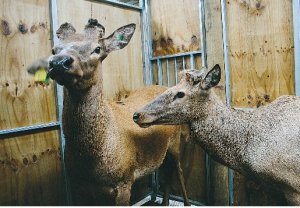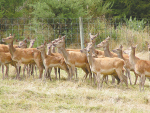Adrian Campbell, a Timaru veterinarian and a member of a group that’s put together a discussion paper on the productivity of the deer industry, says farmers need to be aware of the risks on their farms in relation to animal health issues.
He says a good example of this is the risks posed by yersiniosis, a bacterial disease that affects the gut of weaners in their first year of life. It causes scouring, blood loss, shock and can ultimately kill stock.
“It might be that for some farmers the risk of having yersiniosis is low but mitigating against that [with] certain management steps can reduce that low risk to a very low risk.
“Alternatively, a farmer may say that in the past I have lost stock and risk is high therefore I will vaccinate because I’ve got a business case that per weaner vaccination at about $2/head stacks up well.”
Campbell says what they are trying to instill in deer farmers is the philosophy of risk management.
That comes quite naturally in other parts of the business, such as insuring their tractors or other infrastructure, so why not animal health?
“We’re not saying to farmers that as part of the productivity strategy they have to go around vaccinating, drenching and administering supplements to cover all the main diseases, but what we are saying is that farmers need to be aware of the risk that those conditions and diseases pose to their operation, wherever they may live, and then get them to assess that risk.”
Veterinarians have not had as much input to farms in the deer industry as they have had in the dairy industry, he notes.
The productivity review opens the door for vets to have more involvement with deer farmers, he believes, as vets are trusted and can play an important leadership role in the sector.
“The farmer is absolutely inundated with offers of all sorts of advice on such topics as the environment, grass, fertiliser, drenching policy and even legal issues.
So it’s a very crowded market that we vets vie for to get farmers’ attention but we do have a special support role for our farmer clients.”



















